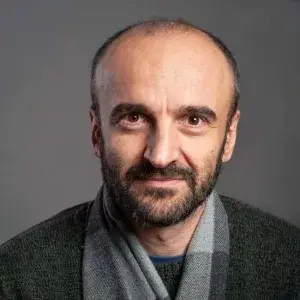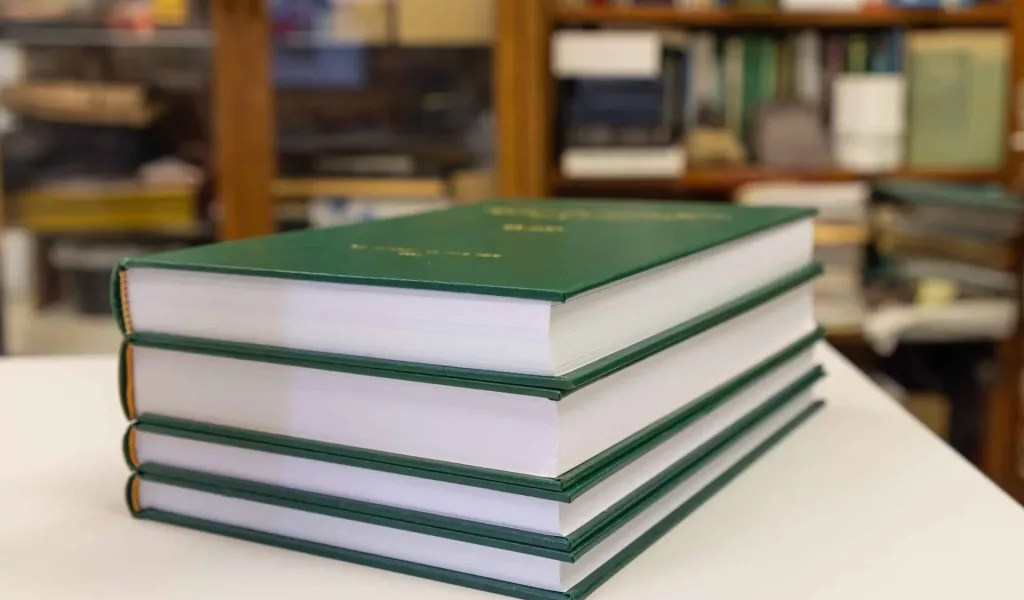Online PhD Program
PhD in Austrian Economics
"The curious task of economics is to demonstrate to men how little they really know about what they imagine they can design"
Friedrich August von Hayek
Austrian School of Economics
Backround & Overview
The Austrian School of Economics is a school of economic thought that emphasizes the spontaneous organizing power of the price mechanism, or the price system, and holds that the complexity of subjective human choices makes mathematical modeling of the evolving market practically impossible. Its roots can be traced back to the late 19th century in Vienna, Austria, with key figures like Carl Menger, who is considered its founder, along with other prominent economists like Friedrich Hayek and Ludwig von Mises playing significant roles in its development.
The Austrian School has influenced various areas of economics and political philosophy, particularly in the realms of libertarianism and classical liberalism, advocating for minimal government intervention in the economy and championing the virtues of a free market system. Its approach to economic theory and policy continues to be a subject of both interest and debate among economists, scholars, and policymakers.
Key principles of the Austrian School include:
Methodological Individualism
The belief that economic phenomena can be explained by looking at the actions of individuals. It argues that collective concepts like "markets" or "the economy" can only be understood through the behavior and choices of individuals.
Subjective Value Theory
This asserts that the value of goods and services is determined not by any inherent property, but by the importance an acting individual places on them. This contrasts with the labor theory of value found in classical and Marxist economics.
Marginalism
Austrian economics was at the forefront of the marginal revolution, which introduced the concept of marginal utility—the idea that the value of goods and services is derived from their utility at the margin, or the utility of the last unit consumed.
Spontaneous Order
This principle posits that order in markets and social systems emerges spontaneously from the actions of individuals, without the need for central planning. Friedrich Hayek famously elaborated on this idea, arguing that a free-market economy is a complex adaptive system that cannot be efficiently managed or predicted by any single entity.
Business Cycle Theory
The Austrian School offers a unique theory of the business cycle, which attributes economic booms and busts to government intervention in the economy, particularly through manipulation of interest rates and credit expansion by central banks, which leads to malinvestment.
Critique of Central Planning
Austrian economists are known for their critique of socialism and central planning. They argue that without price signals to guide production and consumption, a centrally planned economy cannot allocate resources efficiently.
Entrepreneurship
The Austrian School places a strong emphasis on the role of the entrepreneur in driving economic progress through innovation, risk-taking, and the reallocation of resources to more valued uses.
Department of Austrian Economics
Dr. Ivan Jankovic (Chair)
Ivan Jankovic is a professor of economics with 3 books and 20 peer-reviewed papers published in Austrian Economics, Public Choice, and classical liberal theory. His expertise includes the Austrian theory of competition and the firm, industrial organization, business cycle theory, and methodology of social science. The “language” of free market economics of the Austrian type “spoken” by dr Jankovic is with a distinct Eastern European “accent,” having been mediated by a life experience in various forms of socialism that underscored the significance of some of the key insights of the “Austrians.” Dr. Jankovic’s task in this program is to train a new generation of economists in the tradition of the Austrian school, broadly defined, and coordinate the Ph.D. program with other Austrian scholars who supervise or co-supervise the work of Ph.D. candidates at Signum Magnum College.

Doctor of Philosophy in Austrian Economics
PhD Program Overview
The SMC PhD in Austrian Economics offers rigorous training in the Austrian School of Economics, in the tradition of Menger, Bohm Bawerk, Fetter, Mises, and Hayek. It covers a range of topics, including economic method, business cycle, marginal utility theory, theory of the firm and entrepreneurship, and antitrust and monopoly.
You will attain a wide knowledge of economic theory based on subjectivism, deductive reasoning, and individualistic methodology. The program offers a radical alternative to conventional economic graduate programs. It revives a suppressed economic tradition that once was the mainstream but was abandoned for the sake of modern positivism and interventionism. Austrian economics is an alternative to the current economic mainstream in both its theoretical approach and policy conclusions.
PhD in Austrian Economics Curriculum
Doctoral Research Phases
This Doctor of Philosophy degree program has a clear milestone system made up of eight successive phases. Students are initially registered as MPhil. Students. The enrollment status is upgraded to Ph.D. status after at least 24 months of part-time study once the candidate passes the Transfer Interview. Transfer is allowed on clear evidence of progress in their work (Phase Five). The applied milestone system provides a rigorous quality assurance system making sure that only those who reach the expected level of scholarship are allowed to move on.
PhD Program Thesis
Doctor of Philosophy Dissertation
Students work closely with the assigned supervisors to go through the Eight Phases of the program. Research Candidates are to write a thesis that clearly demonstrates competence in the subject area at an advanced level and contribute towards new knowledge. The length of a thesis is of around 100,000 words. At the end of each term, the researcher and their supervisors must each submit a progress report to the SMC Doctorate Committee. When the supervisors are satisfied that the work is ready for examination, the thesis is submitted to an appointed Board of Examiners. After examination, the Chairperson may give approval for the oral defense or ask for resubmission with corrections.
Doctoral Program Duration
This PhD is a part-time program of 4-6 years. The SMC Doctoral Committee may grant candidates an extension of up to two years in order to enable them to complete their studies within 8 years. In exceptional cases and pending approval, the thesis may be submitted in 4 years.

PhD Program Learning Outcomes
Competences, Knowledge, Skills
This PhD program prepares you for advanced research and scholarship in the economic thought an practice of the Austrian School of Economics.
Upon completion of the program, you will have acquired the following general competences, knowledge, and skills (click on each heading to see the details):
- Lead the development of new ideas or new processes in the respective field.
- Make judicious judgements involving a multitude of interlinked factors.
- Promote social, scientific and ethical advancement in the respective field.
- Advise on theory/practice that is complex and possibly even unpredictable, and which may require new strategic approaches.
- Command of high-specialized know-how relevant in the particular context of the field of study.
- Demonstrate intellectual capacities in the ability to deal with very complex problems, including problem formulation, problem solving and innovation capacity.
- Be responsible for academic rigor, creativity and adaptability in addressing specific issues within one’s fields of specialization.
- Manage the necessary resilience and dynamism in the face of very complex phenomena.
- Outline the theoretical foundation of the respective research area which is at the forefront of the concerned field of study
- Design original research with consideration for contemporary societal perspectives that advances empirical/theoretical knowledge in the respective research area
- Create new knowledge at a most advanced frontier of a field of study through original and advanced research of a quality to satisfy peer review and merit publication
- Engage with a diverse specialized audience as a scholar regarding the relevance of theories, applications and practical solutions
- Design solutions to challenges in the local and/or global domain based on original and scholarly research that substantially advance theory/practice
- Undertake rigorous research at the highest level
- Identify ethical issues in the respective research area and assume an academic leading role to promote progress ethically
- Critique the range of knowledge, theory, specifics and philosophical paradigms that underpin research in the respective field of specialisation
- Illustrate empirical qualitative, quantitative, mixed-method approaches or of philosophical inquiry to research
- Implement research methodologies used by researchers in the respective field of studies
- Analyse complex, incomplete or contradictory areas of knowledge communicating the outcome effectively with critical awareness
- Synthesize information in a manner that may be innovative, utilising knowledge or processes from the forefront of the respective area of study with critical awareness
- Address dilemmas and choices that allow researchers to critically evaluate research-based scholarship and practice and to argue alternative approaches
- Demonstrate substantial initiative and originality in problem solving
- Solve issues by establishing criteria, using appropriate decision techniques including identifying, formulating and addressing problems
- Analyse, synthesize and assess new and complex phenomena, issues and situations autonomously and critically in an organisational and/or global business context
- Identify and formulate issues with scholarly precision, plan and use appropriate methods to undertake research within predetermined time frames
- Critique major challenges in the respective research area
- Recognize ethical situations, applying personal and organisational ethical values to situations, managing the implications of dilemmas and working proactively with others to formulate solutions
- Promote social, cultural, commercial, scientific, and ethical advancement through theory and practice
- Communicate expertise to a peers through different media
PhD target group and professional opportunities
PhD students can be mid-career individuals who have already established themselves as business leaders or are on track to being appointed to executive positions and are supported in their academic ambition by their employing organisation. PhD candidates can also be students in their late 20s who excelled in their bachelor’s and master’s degrees and are ready for the next step in academic research. The degree is intended for both senior practitioners in their field, who are used to identifying and dealing with various “real life” issues, as well as researchers whose main strength lies in theoretical knowledge.
The Doctor of Philosophy degree can open a wide range of professional opportunities in a variety of settings from lecturing at Universities or Higher Education Institutions, to top management positions, to consulting or even further entrepreneurship.
PhD Program Tuition Fees
Payment options
-
Discounted single paymentTotal tuition€26,000Settle your tuition in one single payment and benefit from substantial savings. No further fees apply.
-
Flexible yearly paymentTotal tuition€32,000Settle your tuition in 4 consecutive annual installments of €8,000 per year.
If you require financial assistance, please read our information on scholarships here:
Scholarships & Financial Aid | Signum Magnum College (smceducation.com)
PhD Program Application
Doctoral Admission Requirments
Free PhD Program Application
Doctoral Admission Process
Students are initially registered as MPhil. Students. The course of studies is upgraded to PhD status after at least 24 months of part-time study once the candidate passes the Transfer Interview (see Program Structure above). Transfer is allowed on clear evidence of progress in the student’s work (Phase Five). To apply for Admission, please follow the steps below.

This program is accredited by the Malta Further and Higher Education Authority.
Accreditation License Number 2019-014
